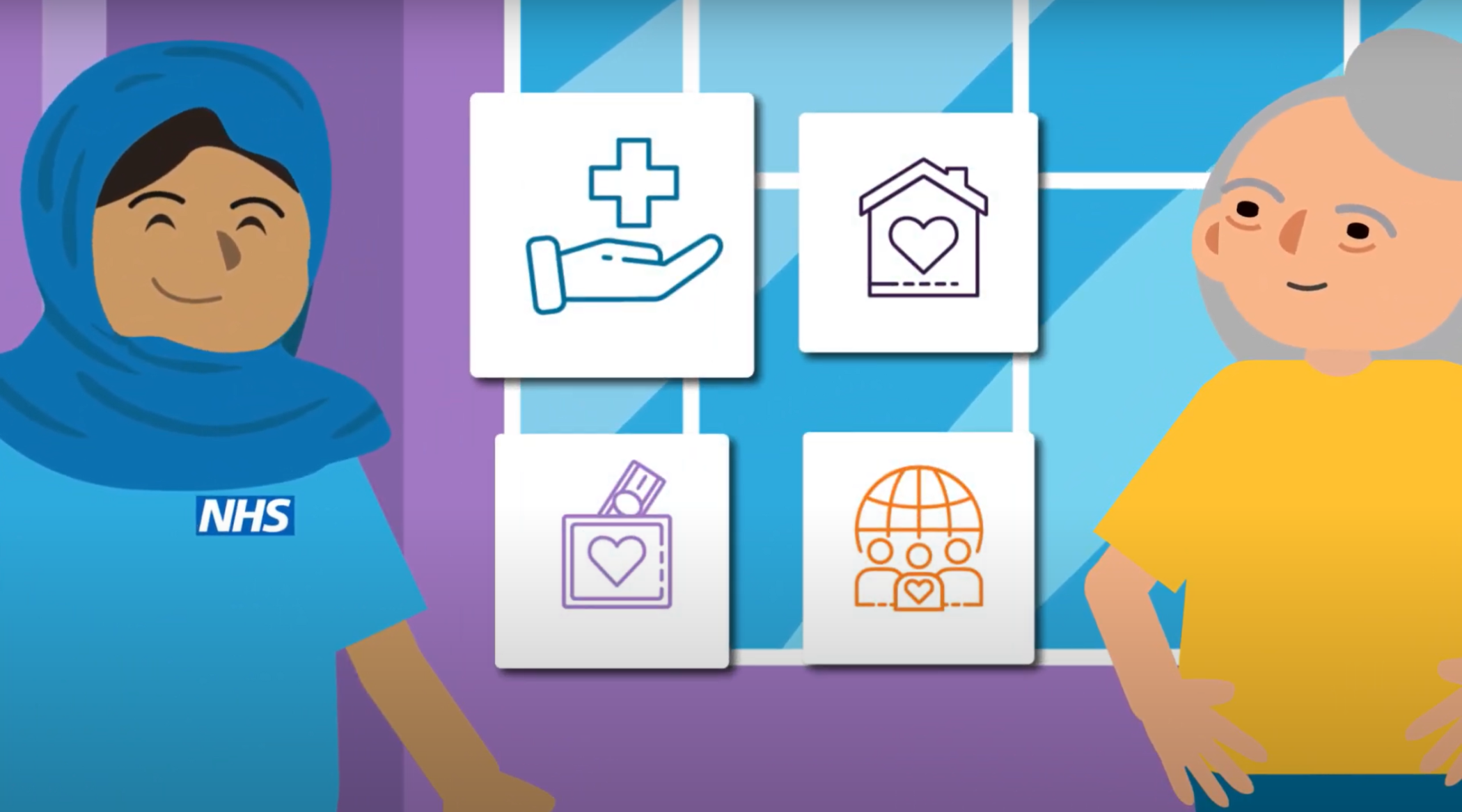Social prescribing allows GPs, nurses and other primary care professionals to refer patients to a range of local, non-clinical services, such as swimming classes at a local leisure centre, to support their health and wellbeing.
Social prescribing, sometimes called community referrals, is often supported by social prescribing link workers. A link worker will talk to you about what matters to you and they can connect you to relevant community groups and services for practical and emotional support.
Social prescribing works for a wide range of people, including people:
- With one or more long-term health conditions
- Who need support with their mental health
- Who are lonely or isolated
- Who have complex social needs which affect their wellbeing.
Most GP practices across Birmingham and Solihull have social prescribing link workers. If you are interested in working with a social prescribing link worker, please discuss this with staff at your GP practice.
Ashley was referred to a social prescriber by her GP for her physical and mental wellbeing, because she was suffering from anxiety, depression, isolation and loneliness.

COVID-19 and Long COVID symptoms had left Ashley feeling tired and emotional with low moods. She hadn't been to work, and she knew she needed help.
Ashley and her social prescriber discussed what mattered most to her, and what interests she had. Ashley said she wanted to meet new people, and she enjoyed swimming.
Ashley's social prescriber told her about local community activities, including an over 50s lunch club. The social prescriber encouraged Ashley to contact the club. Ashley also agreed to exercise on prescription, so that she could go swimming at a local leisure centre.
The social prescriber called Ashley to see how she was doing. Ashley was ok, but she was concerned about the rising cost of living.

The social prescriber helped Ashley complete an application for a support fund to help with financial difficulties, and gave her details of a community-led food pantry.
Later, the social prescriber met Ashley at the over 50s lunch club, as Ashley didn’t want to attend alone.
Ashley was overwhelmed when she visited the lunch club for the first time, but became more relaxed as she settled in.
Keen to access other wellbeing activities, Ashley applied for a passport to leisure, a discount card for activities at council-run leisure centres, wellbeing centres and swimming pools.
The social prescriber continued to stay in touch. Ashley said she was doing really well and felt a lot better in herself.

As a result of the support she received, Ashley has joined a voluntary programme to support Long COVID patients.
She also attends other activities and hopes to make more friends.
Even though Ashley still has days where her mood is low, she feels more able to cope - thanks to the support she has received from her social prescriber.
Birmingham and Solihull has link worker trials in maternity and end of life services. To find out more about the role of link workers in maternity services, please watch the video below.
Birmingham and Solihull's musculoskeletal (MSK) services have been working to link patients to social and community support to help them manage their pain. To find out more, please watch the video below.
Learn about personalised care staff and find out how they help patients
If you have worked with a social prescriber and would like to share your story, please contact our Personalised Care Team via email: nhsbsolicb.personalisedcare@nhs.net



